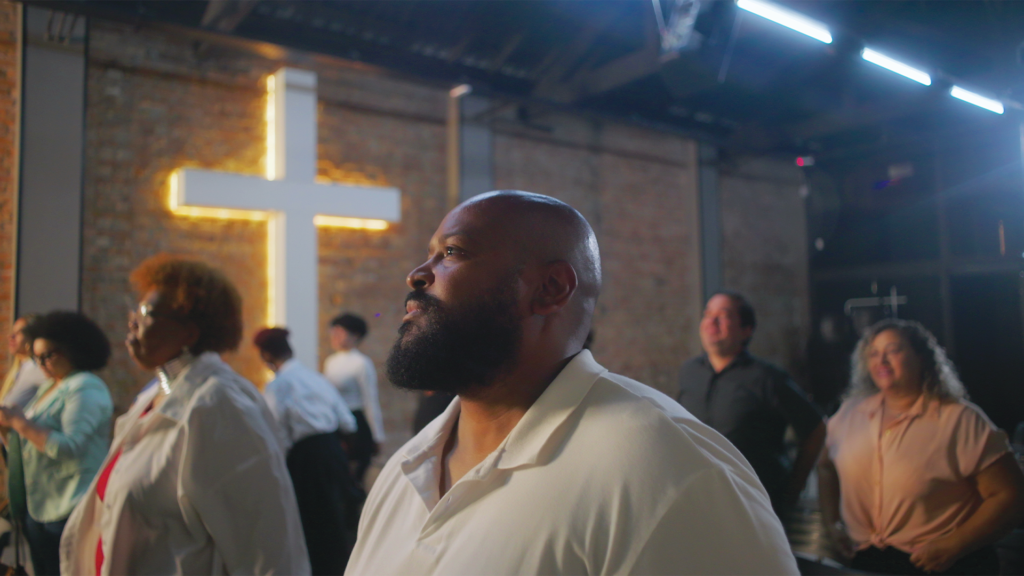The Sabbath
The gracious Creator, after the six days of Creation, rested on the seventh day and instituted the Sabbath for all people as a memorial of Creation. The fourth commandment of God’s unchangeable law requires the observance of this seventh-day Sabbath as the day of rest, worship and ministry in harmony with the teaching and practice of Jesus, the Lord of the Sabbath. The Sabbath is a day of delightful communion with God and one another. It is a symbol of our redemption in Christ, a sign of our sanctification, a token of our allegiance and a foretaste of our eternal future in God’s kingdom. The Sabbath is God’s perpetual sign of His eternal covenant between Him and His people. Joyful observance of this holy time from evening to evening, sunset to sunset, is a celebration of God’s creative and redemptive acts. (Genesis 2:1-3; Exodus 20:8-11; 31:13-17; Leviticus 23:32; Deuteronomy 5:12-15; Isaiah 56:5, 6; 58:13, 14; Ezekiel 20:12, 20; Matthew 12:1-12; Mark 1:32; Luke 4:16; Hebrews 4:1-11.)
“I have come to liberate you from the bondage of the Sabbath.” That statement has been lodged verbatim in my memory for more than a decade. I still remember standing in the late afternoon shade with my parents, hearing those words from the father of a Baptist family we had recently befriended. They had come to visit us on a Sunday afternoon with the intention of liberating us from bondage. But while I appreciate their kind intent, being liberated from the “bondage of the Sabbath” is very much like a spouse being liberated from the bondage of a wonderful marriage, or an addict being “liberated” from a rehabilitation program.
It demonstrates a fundamental misunderstanding of the topic at hand.
My question is, was he solely responsible for the misunderstanding or are we, as Sabbath-keepers, at least partially responsible?
When I recall all the sermons and teaching I have heard about the Sabbath, the primary focus is squarely on the “what” of the Sabbath: a long list of “don’ts”. All the things that are behaviourally unacceptable in the 24-hour period from sunset to sunset.
If we are the champions of the Sabbath, but relate to it (and share it) as if it is a burden, is it any wonder there are so many who are rejecting the message? This is why I wanted to explore the “why” of the Sabbath instead of just the “what”.
Original intent
The Sabbath finds its origins long before Moses received the commandments on Sinai, long before Abraham received the covenant and even before sin entered the world. Our introduction to the Sabbath is found in Genesis 2:1-3 when God completed the creation story by breathing Adam and Eve into existence. He then gave them a gift: 24 uninterrupted hours to get to know Him and each other. They had not yet worked, so there was nothing to recover from. The Sabbath in its original form was not a rest of necessity; it was cessation for the purpose of relationship.
In his brilliant book The Lost Meaning of the Seventh Day, Sigve Tonstad points out eight assumptions we can draw from this Genesis account. The Sabbath is:
- A deliberate act—God did not need rest; He chose to create Sabbath for a reason.
- A distinct prerogative—only God has the power to do so.
- A sign of personhood—only a personality could cease from labour.
- A relational marker—baked into the word for Sabbath is the concept of rest with the purpose of relationship.
- An expression of love—if God created a special time for us to connect with Him for the purpose of our good, that indicates love.
- An affirmation of presence—if God rolls out the welcome mat for us, we can safely assume His presence will be there.
- A day of blessing—the Sabbath is a blessed day, not for its own sake but ours.
- A sign of revelation—if God sets aside time for a loving relationship, that indicates He desires to reveal Himself to us.
These points establish the original positive case for the Sabbath: the “why” of its existence. But before we start drawing our conclusions, it’s important for us to factor in one more element.
The Fall.
The post-fall Sabbath
At the Fall, the Sabbath lost none of its significance, but God began to use it for something new and incredibly beautiful. If we fast forward through history to the time of Moses, we no longer have a nation of free people. We have a Hebrew slave nation who have been whipped into submission by their Egyptian slave-masters for more than 400 years. This is multi-generational slavery; the kind of practice that breaks your spirit and changes your identity.
When the Israelites were plucked out of this situation by God during the exodus, they might have been released from their captivity, but they were not yet a truly free nation. They were a band of slaves looking for a new master and, if you follow the narrative through the book of Exodus, you will see that is exactly how they related to God. So now God had gotten them out of Egypt, His next objective was to get Egypt out of them.
Rehabilitation program
After crossing the Red Sea and being officially “free”, the first thing that God does is supply the Israelites with food. Manna fell six days per week and would spoil if kept overnight. But God asked them to collect double the amount on the sixth day to prepare for the rest they were about to receive on the Sabbath. This was God’s way of rehabilitating His people. He gave them something their captors never would: a day of unmerited rest, a way to restore their dignity as a people and, most importantly, to provide them with a tool to incrementally build trust in Him again.
Keep in mind that this is all still before Sinai. God is rehabilitating His people so they can again be truly free—not only physically but psychologically free to love Him in return. [pullquote]
This process took time and accommodation on God’s part. But eventually they finally took hold of the freedom that was already theirs and became a strong nation.
Like so many things in Scripture, the literal stories highlight spiritual realities. In the Bible, Egypt is often associated with sin and the exodus with salvation, so when we apply these principles to our own experience, we start to see some beautiful realities:
- We all have a history in Egypt (bondage and sin).
- As we come out by means of salvation we are in need of rehabilitation before we are even capable of enjoying the freedom we have been given.
- God gives us the Sabbath to help us learn to trust and eventually love Him in return.
So next time you see the sun set on a Friday, don’t focus on getting your family to comply with a long list of don’ts. That was never God’s purpose. When we treat the Sabbath like a long list of don’ts, we are not only violating the very reason for its existence, we are repelling others from one of the most beautiful truths in Scripture.
Instead, rest in God and realise that He gave you this day to enjoy a relationship with Him. That is the objective. Compliance with the commandment will be natural when we focus on the reason for Sabbath in the first place.
Finally, to circle back to where we began, the Sabbath is far from being a burden of works. In fact it is quite the opposite. Ezekiel 20:12 says the Sabbath is the very sign that we believe God is the One who sanctifies us. He is the One who is making us holy and righteous and ultimately saving us.

Luke Farrugia is a web professional from Bundaberg, Qld. He is passionate about people and takes every opportunity to use technology for God’s glory via podcasting, blogging and more. He can be found at www.austabletalk.com.au.






